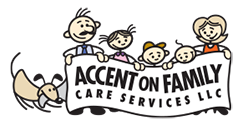TEACHING SKILLS USING POSITIVE BEHAVIOR STRATEGIES
The individuals we work with not only need to learn new skills (how to brush their teeth, plan a nutritional meal, wash their clothes, etc.) but also need to develop more positive attitudes towards the people around them. They must learn to like themselves, develop a feeling of self confidence. They need to know that someone likes and cares about them. They must feel successful and be able to say, “Hey look what I did!” If they do not feel good about themselves, then teaching them new skills will seem to be nearly impossible.
The responsibility for helping the individuals we work with develop good feelings about themselves lies with the people who support them. “As a person who provides direct support,” you can accomplish this responsibility by developing a positive relationship with the individual by your words and actions, “I like you”, “You are a worthwhile person”, ” I know you can do it.”
We need to RESPECT AND VALUE the individuals we work with. They have likes/dislikes, needs, wants, etc. just like anyone else. In order to identify these and help that person learn to fill them we must develop a relationship with that individual. Remember – We are here to help “each person” develop their potential as an individual (i.e., We don’t build products. We build relationships and relationships build people!!) Some of the tools we can use to do this are:
Use these tools to positively build relationships and you may be amazed at the outcome!
APPLIED BEHAVIOR ANALYSIS (ABA)?
ABA uses positive reinforcements to increase desired behaviors. A main component of ABA is breaking tasks into smaller, more manageable components, which promotes increased success. Following are teaching techniques that can facilitate ABA in teaching new skills.
*Disclaimer: The above collection of information is ACCENT on Family Care Services’ interpretation of information that has come from experience, training and research. Most of the information comes from The State of Arizona’s Division of Developmental Disabilities’ Home and Community Based Skill Building Training Manual. This information is intended for the use of ACCENT and those associated with ACCENT. This information is not conclusive and is not meant to take the place of information from professionals.
Article 9 Information
Article 9 is the law as it relates to managing behaviors of those who receive services with the Division of Developmental Disabilities. Article 9 Download
ACCENT trains and certifies in Article 9. The Article 9 certificate stays with ACCENT because the training is free as a service to our employees and applicants of ACCENT.
DCW Fundamentals DCW Dev. Disabilities
The following download contains information for parents and providers regarding how to document habilitation goals. It also contains suggestions for parents to include in their child’s Individual Support Plan. Following this information can help to support the client’s need for habilitation services.


